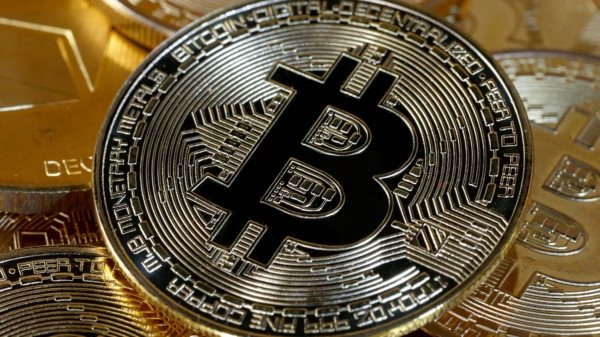Binance founder and CEO Changpeng “CZ” Zhao pleaded guilty to violating the Bank Secrecy Act in court after federal officials alleged he directed Binance to allow U.S. customers to use the platform without conducting proper know-your-customer or anti-money laundering checks.
On Tuesday, Binance founder and former CEO Changpeng “CZ” Zhao was released from custody on a USD$175 million bond.
A court filing states that he will post $15 million held in a trust account by Davis Wright Tremaine (separate from the bond) and agree to forfeit funds if he violates the terms of his release. Additionally, he will find two guarantors, with one pledging USD$250,000 and the other pledging $100,000. The court has scheduled a sentencing hearing for February.
Blockchain analysis firm Nansen reported that Binance experienced outflows exceeding USD$1 billion in the past 24 hours, excluding bitcoin. Meanwhile, market makers pulling back their positions have caused liquidity to drop by 25 per cent over the same time frame, as reported by data provider Kaiko.
The exchange has agreed to pay USD$4.3 billion in fines to the U.S. government, bringing an end to a multiple year investigation into the crypto exchange. According to Nansen, the platform still holds assets worth more than USD$65 billion, indicating that Binance likely possesses sufficient capital to withstand a sudden surge of investors leaving the platform. Although withdrawals are increasing, there has not been a “mass exodus” of funds from the exchange yet.
Over $1B in value has left Binance since the news of @cz_binance's departure. This is a combination of prices dropping and liquidity leaving
However, there remains $65B in Binance's control at the time of writing. This isn't the first time Binance has dealt with large outflows pic.twitter.com/2hvoKwGL9y
— Nansen 🧭 (@nansen_ai) November 21, 2023
Read more: Hut 8 Mining offsets 369 metric tonnes of e-waste en route to carbon neutrality by 2025
Read more: Wonderfi Technologies adds Bitbuy exchange to growing acquisition list
CZ admits he’s made mistakes and steps down as CEO
In a Tuesday post on X, Zhao acknowledged that he had “made mistakes” and expressed his commitment to taking responsibility.
Binance appointed Richard Teng, a former Abu Dhabi financial services regular, as his replacement.
Teng had recently held the position of global head of regional markets at Binance and had previously served as the director of corporate finance at the Monetary Authority of Singapore.
The enforcement action against Binance and its founder resulted from a collaborative effort by the Department of Justice, the Commodity Futures Trading Commission, and the Treasury Department.
The terms of Zhao’s release prohibit him from breaking the law, tampering with witnesses or victims, or consuming any non-prescribed controlled substances—standard provisions in a bond release. The order also appears to permit Zhao to depart from the U.S., with the condition that he must return 14 days before his sentencing. However, federal prosecutors, during a hearing on Tuesday, expressed their intention to appeal this provision to a higher-ranking judge.
Zhao has agreed to stay in the Seattle area until Monday, Nov. 27, allowing DOJ lawyers and his attorneys to resolve this disagreement with the district judge overseeing the case. As part of his guilty plea agreement, Zhao has waived his right to appeal any sentence exceeding 18 months, as stated by Magistrate Judge Brian Tsuchida during the court proceedings on Tuesday.
According to another court filing, the DOJ and Zhao have reached an agreement on a USD$50 million fine, with no mention of prison time.
Binance will continue to operate but under new ground rules. The company must maintain and enhance its compliance program to ensure alignment with U.S. anti-money-laundering standards, and also the company must appoint an independent compliance monitor.
Zhao resigned from Binance on Tuesday as part of the company’s settlement with the U.S. Department of Justice.
Will try to keep 2023 simple. Spend more time on less things. Do's and Don'ts.
1. Education
2. Compliance
3. Product & Service4. Ignore FUD, fake news, attacks, etc.
In the future, would appreciate if you can link to this post when I tweet "4". 🙏
— CZ 🔶 BNB (@cz_binance) January 2, 2023
Read more: Binance client executives robbed of USD$12.5 million while on a business trip to Montenegro
Read more: Blockchain Intelligence inks one year deal to track down cyber-criminals
Binance is the latest in a long list of regulatory scrums
Binance isn’t the only cryptocurrency exchange that’s run into legal and legislative trouble.
In a complaint lodged January, the Securities and Exchange Commission (SEC) alleged that crypto firms Gemini and Genesis offered and sold unregistered securities.
Gemini and Genesis have been embroiled in a battle over the destiny of $900 million worth of customer funds.
Meanwhile, Coinbase Global Inc. (NASDAQ: COIN) and Kraken are actively involved in their own legal battles, and this time it’s with the Securities and Exchange Commission (SEC). In June, the agency filed a lawsuit against Coinbase, mirroring the one it initiated against Binance, accusing Coinbase of operating as an unauthorized securities exchange, broker and clearing agency.
On Monday, the SEC initiated a lawsuit against Kraken, alleging that the exchange mingled USD$33 billion in customer crypto assets with its own company assets, thereby creating a substantial risk of loss for its users.
This has been coming for quite some time. The wild west days of crypto where investors could log onto a platform and expect a certain amount of anonymity are gone, and now the most recent spate of lawsuits from the SEC and DOJ are affirming a new ethos built on the rule of law.
.













